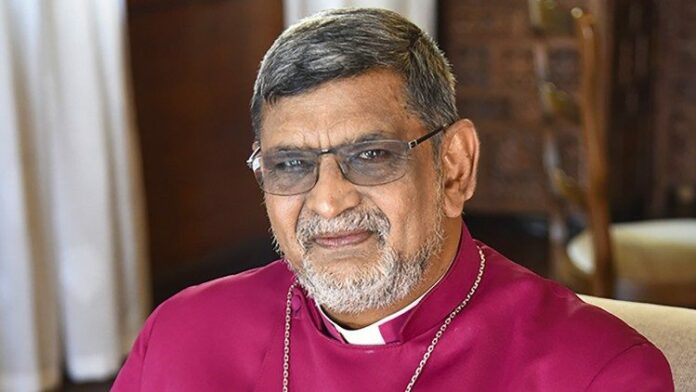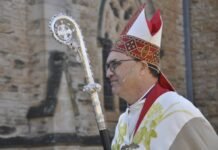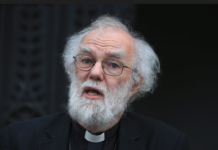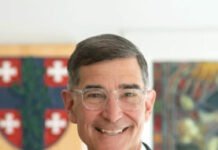Archbishop Ian Ernest, the Archbishop of Canterbury’s Personal Representative to the Holy See and the head of Rome’s Anglican Centre, will be stepping down from his position at the end of January.
He spoke to Vatican News’ Marie Duhamel about his time in Rome, and his role of helping the Pope and the Archbishop of Canterbury to “together become beacons of hope.”
Listen to our interview with Archbishop Ian Ernest
Road to Rome
Ecumenism has been an important part of his identity, Archbishop Ernest said, “since childhood”. He attended a Catholic school, and his father – an Anglican priest – was friends with its chaplain. While in the seminary, he studied philosophy for a year at Mauritius’ Catholic seminary.
Despite this, the Archbishop said, when he was asked by the Archbishop of Canterbury to become his Personal Representative in Rome, his first thought was “who am I to do that job?”.
Ultimately, he said, he realised that the task was only possible with God’s help: “Everything I’ve been doing here, enhancing the relationship between the Roman Catholic Church and the Anglican Communion, was only possible through the grace of God”.
Pope Francis and Justin Welby
The spiritual leader of the Anglican Communion for almost all of Archbishop Ernest’s tenure was Justin Welby.
Archbishop Welby was elected in the same year as Pope Francis, and often spoke of his friendship with him.
In 2023, the Pope and the Archbishop, together with the Rt. Rev. Iain Greenshields, the Moderator of the Church of Scotland, made a joint ‘pilgrimage of peace’ to South Sudan
“As the Personal Representative of the Archbishop [of Canterbury]”, Ernest said, “I had to be able to communicate his vision, so that he and Pope Francis could together become beacons of hope.”
The joint journey to South Sudan, Archbishop Ernest said, was a “concrete example of this hope”, and of “visible collaboration” between churches “for the sake of God’s world”.
If he had to give a name to this joint venture, Archbishop Ernest said, quoting the Pope’s 2020 Encyclical, “I would call it ‘Fratelli tutti’”.

Pope Francis with Justin Welby
Archbishop Welby’s legacy
Late last year, Archbishop Welby resigned over his handling of a historic sex abuse case.
Asked about the legacy Welby would leave behind, Archbishop Ernest said that he thought a major component would be his focus on the need for reconciliation, both with God and with others.
“We’ve been reconciled to God through Jesus Christ”, Ernest said, “and reconciled to each other through the blood of Christ. I think it’s important that we retain that from [Archbishop Welby’s] ministry.”
Another major component, Archbishop Ernest said, would be Welby’s emphasis on “the need for the church to be always on mission”.
Welby’s successor as Archbishop of Canterbury, Ernest said, would have to balance “continuity with the early Church”, on the one hand, with the need to adapt the mission to today’s context, “with the exigencies of the social context we live in”, on the other.
Asked whether this is a “heavy task”, Archbishop Ernest stressed that “all of us have responsibilities”.
“A doctor healing people, a teacher teaching a child, a parent – we all have a heavy task. What we need is to let the grace of God flow in us, and He will be the one, as Paul says, to guide us through.”



